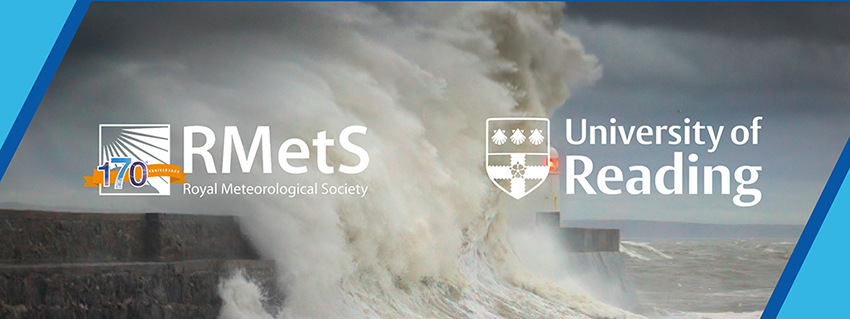European winter weather is dominated by the action of synoptic-scale systems, such as cyclonic “storms” and the anticyclonic “blocks” that can stop their progress. From cold-snaps such as 2018’s Beast from the East to wind storms and flooding like that caused by last winter’s storms Lorenzo, Ciara and Dennis, the impacts can be profound, with loss of life, severe infrastructure damage and billions of pounds of insurance losses each year. Anticipating the behaviour of these weather systems – collectively referred to as the North Atlantic storm track – is vital for weather and climate risk management for across many different industrial sectors in Europe.

Advances in computational and observational capacity are enabling the simulation and understanding of storms and storm tracks to progress rapidly. Recent research offers profound new insights into the forecasting of individual weather systems (e.g., sting jets, cyclone clustering and atmospheric rivers), and the aggregated behaviour of storm tracks and weather-regimes weeks to months ahead, for example through examining teleconnection patterns. Looking further ahead, a new generation of climate models – in particular high-resolution models incorporating a wide range of earth-system processes – are helping to anticipate how the North Atlantic storm track may respond to climate change and understand its consequences for European weather over the coming decades.
Access to new research knowledge is an important part of an operational meteorologist’s forecasting toolkit but maintaining awareness of a rapidly developing science can be challenging. So the University of Reading is therefore pleased to announce a new series of Meteorological Masterclasses in partnership with the Royal Meteorological Society to support professionals working in Meteorology and Climate Science who want to develop or maintain an awareness and in-depth understanding of recent research advances relevant to applied meteorological science.
In a first series of three webinars, participants will have the opportunity to learn about current cutting-edge research on winter storms from three University of Reading experts:
- 16 September: A review of synoptic storm research: past, present and future – Professor Helen Dacre, Lecturer in Dynamical Meteorology View webinar here
- 30 September: The impact of climate change on winter storms – Professor Len Shaffrey, NCAS Professor of Climate Science
- 14 October: Sub-seasonal predictions for European winter – Dr Robert Lee, NCAS Research Scientist
The webinars are free to attend and will be held from 3pm to 4.30pm. A presentation will be followed by the opportunity for questions and discussion with the speaker. Further details and registration can be accessed here.
